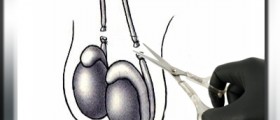Vasectomy is considered a permanent contraceptive method, but an increasing number of men are choosing to have a vasectomy reversal. How successful are these operations, generally? What can men expect from their fertility after they have undergone a vasectomy reversal?

Advances in microsurgery have improved vasectomy reversal success rates, but there are no guarantees. After all, the real measure of vasectomy reversal "success" is whether a couple gets pregnant after having had the operation done, and pregnancy rates depend on female factors as well as male ones.
There are two different types of vasectomy reversal. In a vasovasostomy, the vas deferens are connected to the vas deferens the tubes that lead sperm from the testicles to the penis, and which were disconnected when the man had a vasectomy. The vasovasostomy procedure, which is carried out using different (and equally successful) microsurgery techniques, is suitable for men who have sperm present in their vas deferens.
The other technique, vasoepididymostomy, involves connecting the vas deferens to the epididymis. This technique is generally considered less successful, and therefore less preferable, but it's suitable for those men who had no sperm present in the vas deferens.
Talk to doctors who carry out vasectomy reversal operations, and you'll see they have an optimistic view of the success rates. In the end, success is measured through pregnancy, and studies have found a success rates from 30 percent to 76 percent after vasectomy reversal. A lack of success (meaning, a lack of pregnancy) could of course be the result of many different factors related to both the male and the female partner.
Fertility treatment can sometimes offer success where natural pregnancy doesn't occur after a vasectomy reversal, even if there is a sperm delivery problem.In this day and age, it's fair to conclude that a vasectomy reversal is a viable option for those men who would love to have another biological child, after all but also that its cost and success rates are such that it's not time to start seeing a vasectomy as a temporary, reversible contraceptive technique.

















Your thoughts on this
Loading...